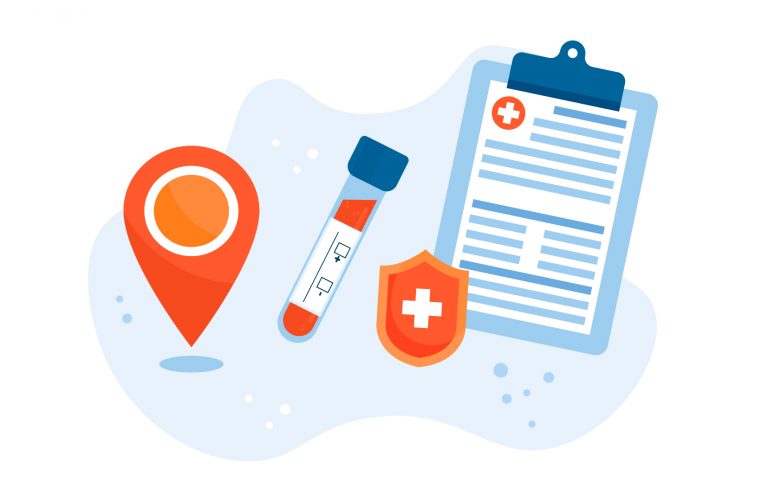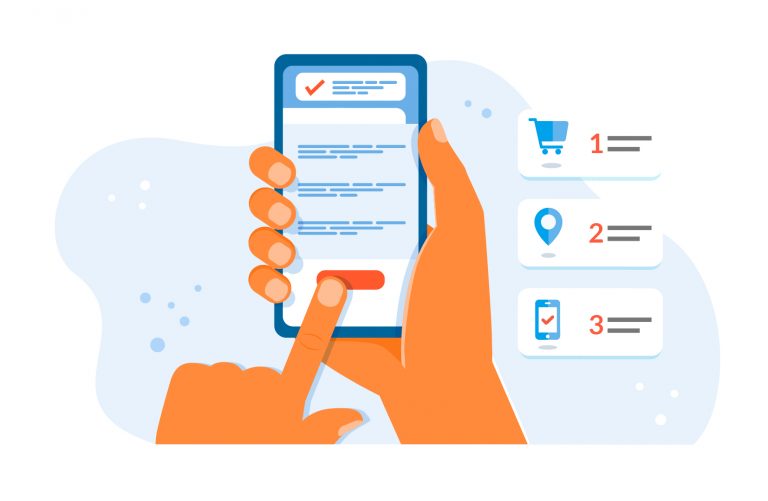HIV RNA Early Detection Testing
Get diagnosed quickly with HIV RNA early detection testing.
Get Tested Now - $169What is HIV RNA Early Detection Testing?
An HIV early detection test, or a viral load test, is used to identify a recent exposure to the human immunodeficiency virus (HIV). While regular antibody testing is only accurate about 2 months after transmission, HIV RNA testing can detect the infection as soon as 10 days after transmission.
Currently, there is no cure for HIV. However, modern medicine and early testing options allow people with this STD to live long, happy lives. Because of this, Priority STD offers easy, early detection HIV testing online.

ORDER
Purchase your lab order privately online or over the phone. The process is simple, quick, and secure. Our care counselors are available to answer any questions you may have or help schedule testing.
VISIT
Get tested same day at any of our 4,000 private locations, no appointment is needed after ordering. Our collection facilities are discreet, no other patients will know the reason for your visit.
RESULTS
Our test results are lightning fast and typically process in just 24-72 hours. You can access your results online through a secure patient login, or by calling one of our care counselors. Treatment options are available as well.
Now get tested for HIV, without the wait.
How HIV RNA Testing Works
Similar to other STD tests, an HIV RNA test requires a single, quick blood sample. While regular testing searches for the presence of antibodies, HIV RNA early detection requires a specialized nucleic acid amplification test. Instead of searching for signs of the body’s reaction, our CLIA-certified labs look for the presence of the virus itself.
While other sources may take weeks to deliver results, we treat your concern with the urgency it deserves. Our HIV RNA test results are provided within 3-5 business days after collection, available through our online portal.
Why Order HIV RNA Testing
An HIV early detection test offers the opportunity for a much earlier diagnosis and treatment. According to the US Department of Health, of those HIV positive, 13% are unaware of the infection.2 While signs can happen, they are not guaranteed and symptoms can be mistaken for other illnesses.
While HIV is not as common as other STDs, the idea of possibly having it is enough to make anyone concerned. Worrying about the complications or the risk of spreading the virus is something that no one should have to go through.
When to Get Tested
HIV RNA testing is conclusive 10 days post-contact. If you came into contact with the virus outside of the three month window, regular testing is recommended for the most accurate results.
In general, if you are pregnant, sharing needles, have had unprotected sex with an infected partner, or are between the ages of 13 and 64 you should get tested for HIV.3,4 It is also greatly encouraged for MSM (men who have sex with men).5
HIV/AIDS Treatment
HIV and AIDS are treated with antiretroviral therapy (ART), a method used to reduce viral load.6 While there is no cure, ART allows millions of people with HIV to live long, happy lives. Consistent antiretroviral therapy has even been known to reduce viral load to undetectable levels –making it virtually impossible to spread the infection to others.6
In the event of a positive test, our care counselors are available to provide further guidance. The earlier HIV is detected, the earlier treatment can begin to prevent AIDS.
When it comes to your sexual health, we believe that getting tested for HIV should be a quick, easy and painless process. That is why Priority STD Testing offers intuitive HIV RNA tests, given at discrete yet professional testing centers.
To order an early detection HIV test, there are 3 simple steps. Order your test online, visit a local testing center, then receive your results within 72 hours. Our care counselors are available every step of the way! No awkward physicals. No swabbing. Just a simple blood test and quick turnaround.

Our Tests are FDA Approved and Performed in CLIA Certified Labs
Twin STD Panel
$119- Chlamydia
- Gonorrhea
10-Panel STD Test
Most Popular $198- Chlamydia
- Gonorrhea
- Hepatitis B
- Hepatitis C
- Syphilis
- Herpes 1
- Herpes 2
- HIV 1 Ab
- HIV 1 Ag
- HIV 2 Ab
Individual STD Tests
- Chlamydia - $89
- Gonorrhea - $89
- Hepatitis B - $59
- Hepatitis C - $59
- Herpes I/II - $99
- HIV 1/2 - $79
- Syphilis - $69
- Trichomoniasis - $109
- Mycoplasma Genitalium - $139
- HIV RNA Early Detection - $169
Have Questions?
Do you take walk-ins?
To get same day testing, simply purchase your lab order either online from our website or over the phone with one of our care counselors. Once your order has been placed, you can get tested immediately at any of our local and discreet collection facilities without an appointment. No other patients at the testing center will know your reason for visiting other than to give a routine urine and blood sample.
How do I get my test results?
Your test results are accessible through a secure login unique to your order, updated 24 hours a day including partial results. Once your final results are available, you'll be notified by email discreetly. Test results are expedited as a rush order and typically process just 24-72 hours after visiting the collection facility. If you have questions about your results or require a treatment consult, our care counselors are just a phone call away. Nothing will ever be sent to your home or healthcare provider to respect your privacy.
Do I need an appointment after ordering?
No appointments are required at the collection facility after you have ordered your test. Your lab order is valid for 90 days and can be used immediately once your order has been placed. Typically your entire visit will take no more than 15-30 minutes.
Can I switch testing sites?
Even after you have selected a testing site, you can switch locations any time you wish. Your lab order can be used at all Quest Diagnostics collection sites within the same state without having to change your lab order. If you wish to test in a different state, simply call to speak with a care counselor who can update your requisition. There are no fees associated with switching testing sites either.
Is a swab required for testing?
Patients frequently ask if swabs are required for testing. Swab testing is not only uncomfortable, but also can be embarrassing. Our tests do not require a swab or any other type of visual examination. All that is needed is a simple urine and blood sample.
How accurate are my test results?
All of the tests we offer are FDA approved and performed in CLIA certified labs to ensure the highest level of accuracy. Some STDs require that you wait a period of time after sexual contact before getting tested. Each disease has a different latency period, so understanding when to test is important. If you have questions, our care counselors are happy to walk you through the process, start to finish.
Do I need to fast before getting tested?
No fasting is required for any type of test we offer. If you are testing for chlamydia, gonorrhea, or trichomoniasis, please ensure that you have not urinated for at least one hour prior to visiting the testing center.
Do you accept insurance?
To use your health insurance, we are able to provide all of the necessary information to file a self-claim. We utilize Quest Diagnostics which is the largest lab network in the nation, therefore most healthcare providers will offer some form of reimbursement. We will never directly bill your insurance to ensure your results are completely private and kept off of your permanent health record.
Sources
- “About HIV/AIDS.” Centers for Disease Control and Prevention. Centers for Disease Control and Prevention, June 1, 2021.
- “U.S. Statistics.” HIV.gov. US Department of Health & Human Services. www.hiv.gov/hiv-basics/overview/data-and-trends/statistics
- “Which STD Tests Should I Get?”. Centers for Disease Control and Prevention. Centers for Disease Control and Prevention, July 22, 2021. www.cdc.gov/std/prevention/screeningreccs.htm
- “HIV and Gay and Bisexual Men.” Centers for Disease Control and Prevention. Centers for Disease Control and Prevention, September 16, 2020. www.cdc.gov/hiv/data-research/facts-stats/gay-bisexual-men.html
- “HIV Treatment.” Centers for Disease Control and Prevention. Centers for Disease Control and Prevention, May 20, 2021.
